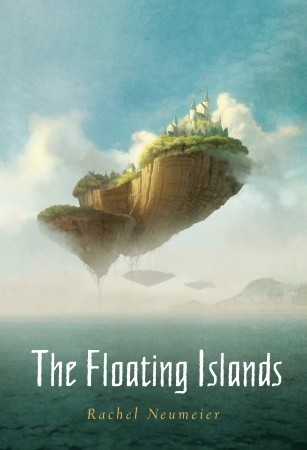Starting with the Theme
Here’s a post at Jane Friedman’s blog: Starting Your Novel With Theme
This is interesting because of the earlier articles about starting with character or starting with plot. At the time, when the author of these posts said a handful of writers start with theme, I wondered what that could mean. The post on Starting With Character included this bit:
In my work as a book coach, I’ve found that writers of fiction generally fall into three camps: those who start with character, those who start with plot or story concept, and those who start with theme...
And my response was:
Oh, the theme! I hadn’t thought of that as an option. That’s an interesting idea — starting with the theme. I feel like most of the time I don’t know what the theme is until a reviewer says, “Neumeier’s strong theme of whatever,” and then I’m like, Oh, right, that was definitely the theme.
So here we are, starting with theme. So what does the author of these posts, Susan DeFreitas, mean by that?
It turns out, not what I would mean.
Here’s what I think of when I think of themes:
Loyalty. Motherhood. Trust.
The overall theme of Jack Chalker’s Flux and Anchor series is: You can’t win, so protect yourself and those close to you.
The theme of _______ series __________ is: You had better not trust anyone.
The theme of LMB’s Barrayar is motherhood — what it means to be a mother. This book looks at the way various female characters take different approaches to motherhood and the way uterine replicators affect motherhood. Different aspects of motherhood are very important — protectiveness, unconditional love. Motherhood is the most important theme of this book.
But this isn’t what DeFreitas means at all! She’s not thinking of themes — she’s thinking, as far as I can tell, of setting.
And there may be many portal fantasies, but there are no other novels like those of Jeff Vandermeer’s Southern Reach trilogy, because those novels were inspired by Vandermeer’s fascination with the uncanny flora and fauna of Fiji, where he spent much of his childhood. … Along with that sense of uniqueness, novels built around theme tend to have a strong, particular aesthetic that run through them. It’s not just about who the characters are or what’s happening in the story, it’s about how the whole thing feels.
Fiji is a setting. Building a world based on that ecosystem means building a setting, not a theme. What this means is DeFreitas is defining theme this way: the subject of a talk, a piece of writing, a person’s thoughts, or an exhibition; a topic. Or she is defining it this way: a particular setting or ambience to (a venue or activity). Both of those come up when you google “define theme.”
I was thinking exclusively of this other definition: an idea that recurs in or pervades a work of art or literature. This definition also comes up. I sort of thought this was exactly what anyone meant by theme when discussing a novel. It never occurred to me DeFreitas might mean anything else.
This means she is framing the starting point as character, plot, or setting — and that, I think, is correct. Those are the three fundamental choices an author has when starting a book, though I am sure there are many examples where character and setting are almost equally important, or plot and setting, or whatever. Then, no matter which of those three you start with, you may emphasize a particular theme.
DeFreitas says she rarely sees anyone start with theme (setting). I actually think it’s quite common, perhaps more so in SFF than other genres. Despite being a character-centered reader and writer, I started with setting for The Floating Islands. I played around with wildly different characters and societies and plots, YA and adult, in this type of setting for a long time before I settled down and wrote the first draft of the story. This type of image was the fundamental starting point.

I don’t know whether anybody would read this book and say, Ah ha, I bet the author started with this image of the setting and came up with the characters later and the plot after that. But so it is.
None of that is the theme, or a theme. The themes in this book are, as far as I can tell, family, grief and recovery, and trust. I didn’t start with those, exactly, except in the sense that the author’s worldview creates thematic emphasis in all her work. The themes grew out of the characters and the plot and my personal view of the world.
Please Feel Free to Share:






The post Starting with the Theme appeared first on Rachel Neumeier.




